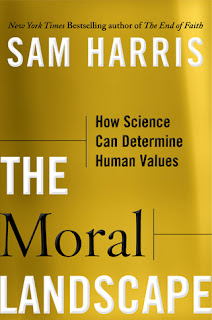
Coming to Faith Through Dawkins: 12 Essays on the Pathway from New Atheism to Christianity by Denis Alexander
My rating: 5 of 5 stars
I thought this was a very good book and well worth reading.
A couple of weeks ago I was at the book launch where Denis Alexander, one of the editors, introduced it by interviewing three of the authors, and the following morning I heard him speak on genetic determinism, which happens to be his academic field. Dr Alexander, and the authors, made the book sound interesting, and so it was.
What bothers me a bit about writing a review, no matter how much I enjoyed the book, is that it is in effect a collection of twelve reviews of a book that I haven't read, The God Delusion by Richard Dawkins. Note: Though this piece is based on a review I wrote on GoodReads, it goes beyond the review in being more wide-ranging, and also more personal
The God Delusion is a polemic against religion in general and Christianity in particular, and in this book all twelve authors describe how reading it had the opposite of the intended effect on them.
Obviously not all readers will find Dawkins's book counterproductive, and indeed for some of these authors it initially wasn't; but in all of them it ultimately produced the opposite effect to what the author intended. Many of these authors were looking for something to confirm or reinforce their atheism, but instead The God Delusion had the opposite effect and made them doubt it.
Some of the contributors to Coming to Faith through Dawkins are working in the same or related academic fields as Richard Dawkins, and admire his work as an evolutionary biologist, and say how disappointed they were when they read The God Delusion, which fell far below the standard of his scientific works. Celebrity in one discipline does not necessarily make one an expert in another, unrelated, field. For more on that, see here.
Though I haven't read any of the works of the "New Atheists", I have encountered some of their disciples and fans online. I usually try to avoid being drawn into arguments with them, as most of them tend to be more dogmatic than their heroes, and their logic tends to be even more simplistic, so that the arguments go round in circles. They love to recite the creed of valid and invalid arguments, often just before asking question-begging questions or setting up a straw man, so one thing I learned from this book was that even the models they base themselves on do that.
One of the best examples of that came from a colleague at work who was an agnostic, and tried to join an online group for discussing atheism, agnosticism and so on. But he was blackballed because he had a heretical view of the nature of God. It turned out that in order to join the group one had to not believe in the god that Sam Harris didn't believe in, having exactly the same nature and characteristics. No other god would do.
One reason I haven't read any of the works of the New Atheists is that I'm not much interested in the question of the "existence" of God. I have never been convinced by any of the arguments for the existence of God, and I suspect that most Christians are unaware of them, much less convinced by them. Some parts of Coming to Faith through Dawkins mentioned the Cosmological Argument and a couple of others. I'd have to look them up to find what they are, so I just skimmed through those parts of the book.
That is also another of the reasons I try not to get involved in arguments with soap-box atheists online or in person. The arguments wouldn't convince me, so why would they convince them? The only times I do comment are when the atheist asks a question-begging question, or demonstrates some other logical flaws.
One such question, however, I did relay to Dr Denis Alexander when he spoke on genetic determinism, because it seemed to be right in his field. Someone who bills himself as a talented sceptic asked on Twitter (alias X) "What is the biological cause of the fear of death?"
I took his question at face value, and answered: "Natural Selection. Those who do not fear death do not survive long enough to reproduce."
He didn't comment, but I suspect that that was not the kind of answer he was looking for. There may have been a hidden sub-text; there usually is a hidden sub-text to such questions.
And most questions asked by soap-box atheists seem to start in the wrong place and with questionable assumptions, like "What evidence do you have for the existence of God?" (I learned from Coming to Faith Through Dawkins that the demand for "evidence" is a prominent characteristic of the New Atheists).
Any response is likely to be met with "The onus is on you to provide evidence." But who determined the onus? The onus-putters. The question belongs to Humpty Dumpty; it's really "Who is to be master? That's all."
The authors of Coming to Faith through Dawkins come from many different Christian traditions, and many different academic fields. They come from five different countries (three of them are South Africans -- the ones who were at the book launch). Some of the contributions appealed to me more than others, but because of the variety anyone who has any interest in questions of science and faith, or related questions, should find this book interesting.
View all my reviews





